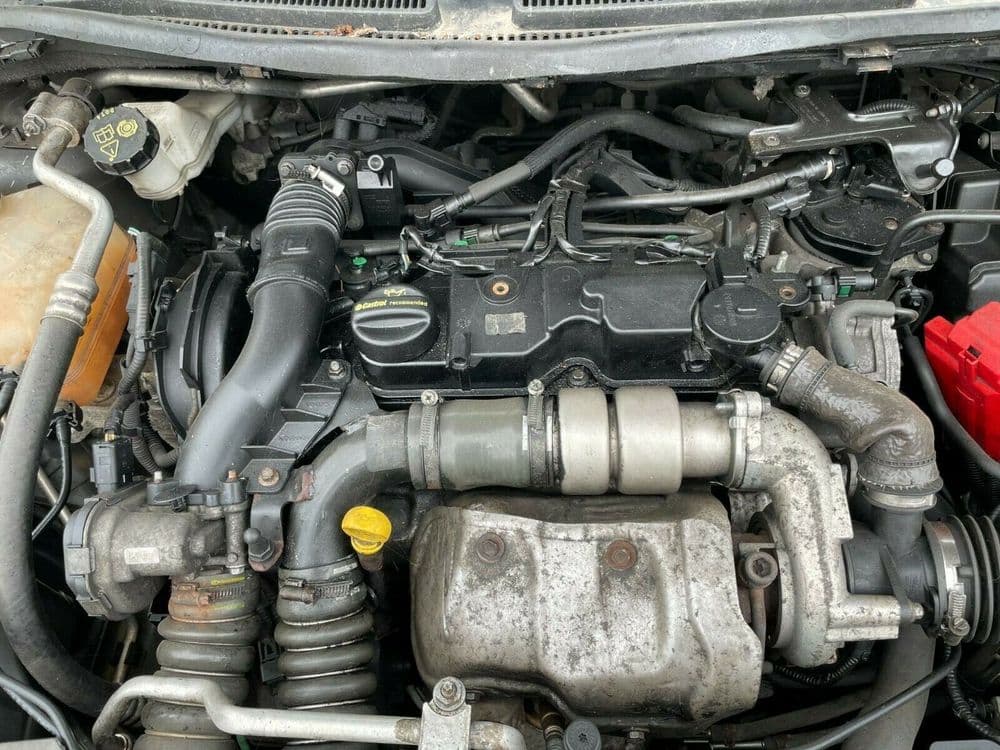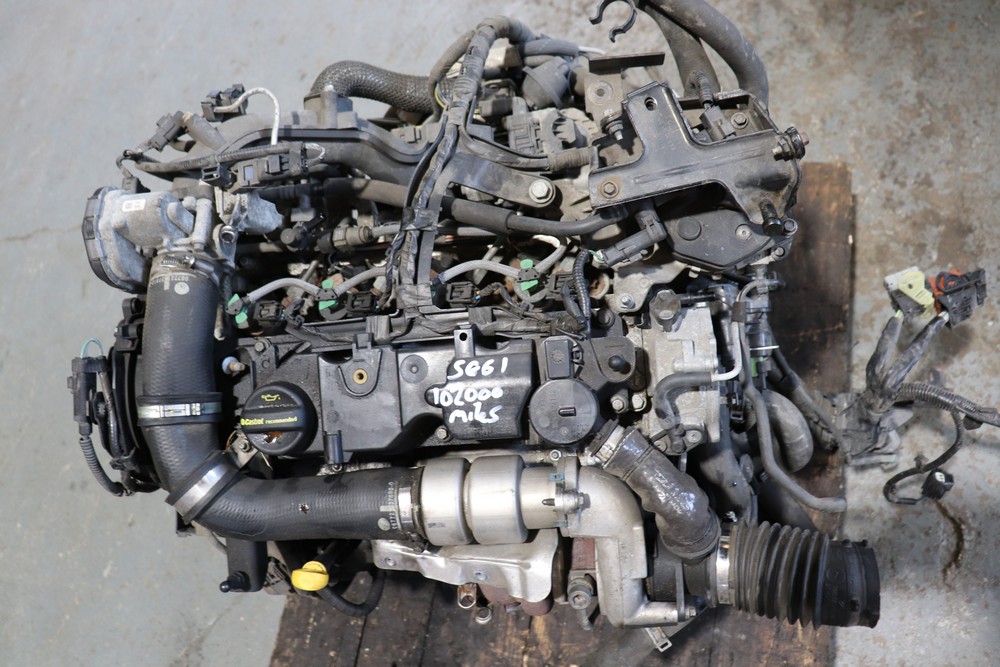Essential Services for Keeping Your Ford Fiesta Engine in Peak Condition
Essential Services for Keeping Your Ford Fiesta Engine in Peak Condition
Blog Article
The Future of Engines: Technologies Driving Sustainable Power Solutions
As the automotive market browses the critical transition in the direction of sustainability, the future of engines is significantly specified by groundbreaking technologies. Electric engine developments, together with encouraging growths in hydrogen gas cells and biofuels, are improving the landscape of power services.
Electric Engine Developments
The development of electrical engine growths symbolizes a critical shift in the aerospace and vehicle sectors, driven by the immediate need for lasting options to nonrenewable fuel sources. This change is identified by substantial innovations in battery innovation, power electronic devices, and electric motor layout, which collectively enhance the efficiency and performance of electrical engines.
Current innovations have brought about the production of lighter, more energy-dense batteries, such as lithium-silicon and solid-state batteries, which assure longer ranges and much shorter billing times. Furthermore, improvements in electrical motor performance, such as using long-term magnets and progressed cooling systems, make it possible for electric engines to run effectively under varying conditions. These enhancements not only boost automobile performance yet additionally add to a decrease in total power consumption.
Additionally, the combination of innovative software algorithms has enhanced power management in electrical cars, allowing for regenerative braking and anticipating charging methods. As manufacturers progressively welcome electrical propulsion, the aerospace and auto fields are experiencing a standard shift towards greener modern technologies. This development not only meets governing demands however likewise aligns with consumer choices for environmentally pleasant transport options, solidifying electrical engines as a keystone of future lasting movement.
Developments in Biofuels
As the automotive and aerospace sectors significantly focus on lasting power sources, developments in biofuels emerge as a complementary remedy to electric engines. Biofuels, stemmed from organic materials such as crops, waste, and algae, provide a cutting-edge opportunity for lowering greenhouse gas exhausts and reliance on fossil gas.
Current study has concentrated on enhancing the effectiveness and sustainability of biofuel manufacturing. Second-generation biofuels utilize non-food feedstocks, lessening competitors with food supply and reducing environmental impact. Moreover, improvements in synthetic biology have made it possible for the engineering of microorganisms to generate biofuels a lot more efficiently, causing higher returns and reduced production expenses.
Furthermore, the growth of drop-in biofuels allows for seamless assimilation right into existing facilities, making it possible for a smoother shift for sectors traditionally based on fossil gas. ford fiesta engine. These gas can be made use of in existing engines without alterations, facilitating their adoption across numerous markets
Investments in biofuel modern technology, in addition to encouraging policies, are vital to drive advancement and scalability. As the worldwide neighborhood seeks to battle environment change, biofuels offer a practical, immediate service that aligns with the overarching objective of sustainability in transportation and air travel.
Hydrogen Gas Cell Modern Technology
An expanding variety of firms and researchers are exploring hydrogen gas cell innovation as a sensible option to standard source of power in transportation and energy systems. This technology transforms chemical power from hydrogen into electrical energy through an electrochemical reaction, with water as the only by-product, making it an eco-friendly alternative.
The core of hydrogen fuel cells is the fuel cell pile, where hydrogen molecules are divided into electrons and protons. The flow of electrons creates electrical energy, while protons move with a membrane to combine with oxygen from the air, developing water. Read Full Article This procedure results in high performance and low discharges, positioning hydrogen gas cells as a vital player in the change to lasting power.
Significant developments have actually been made in improving the toughness and performance of fuel cells, together with decreasing expenses with innovative manufacturing techniques. Additionally, the growth of hydrogen production methods, such as electrolysis powered by renewable resource resources, enhances the sustainability of the total system. As framework for hydrogen refueling expands and production approaches come to be extra reliable, hydrogen gas cell modern technology holds fantastic guarantee for decarbonizing different industries, including heavy-duty transportation and stationary power generation.
Crossbreed Systems and Their Impact
Hybrid systems stand for a considerable development in lasting engine technology, merging typical inner burning engines with electric propulsion to enhance power efficiency and minimize discharges (ford fiesta engine). This twin approach allows lorries to utilize both power sources, allowing better adaptability in energy usage and decreasing dependence on nonrenewable fuel sources

In addition to ecological advantages, crossbreed systems provide consumers a sensible change towards fully electrical vehicles. They minimize array anxiousness by combining the benefit of gas with the benefits of electrical propulsion, making them an eye-catching choice for a broader target market.
The Role of AI in Engine Style
Leveraging innovative formulas and artificial intelligence methods, the auto sector is progressively integrating expert system (AI) right into engine design processes. AI enhances the efficiency and efficiency of design by assessing huge datasets to determine optimum arrangements and performance specifications. This ability enables engineers to imitate various operating problems and anticipate engine habits under several situations, dramatically reducing the time and expense connected with traditional prototyping approaches.
In addition, AI helps with the growth of advanced materials and combustion processes tailored for sustainability. By enhancing fuel effectiveness and decreasing discharges, AI-driven designs straighten with worldwide campaigns targeted at lowering the carbon impact of automotive engines. Maker understanding algorithms can also anticipate upkeep demands, leading to enhanced integrity and durability of engine components.
Moreover, AI contributes in the combination of electrification modern technologies, visit here such as hybrid systems, where it can maximize battery management and power recuperation processes. As the market moves towards more sustainable power remedies, the duty of AI in engine style becomes significantly crucial, driving development and enhancing the performance of future engines. Eventually, the cooperation between AI and engine design advertises a brand-new era of smarter, cleaner, and a lot more effective vehicle innovations.

Verdict
In conclusion, the future of engines is being shaped by a convergence of innovative modern technologies that prioritize sustainability. Electric engine innovations, biofuel advancements, hydrogen fuel cells, and crossbreed systems jointly contribute to a substantial reduction in emissions and ecological effect.
Electric engine innovations, alongside encouraging developments in hydrogen fuel cells and biofuels, are improving the landscape of power remedies. Additionally, enhancements in electric motor efficiency, such as the use of irreversible magnets and progressed cooling down systems, allow electric engines to run successfully under varying conditions. By optimizing gas effectiveness and minimizing discharges, AI-driven designs line up with worldwide efforts aimed at lowering the carbon footprint of automotive engines. As the market moves towards even more sustainable power services, the role of AI in engine style becomes progressively important, driving development and boosting the performance of future engines. Electric engine developments, biofuel advancements, hydrogen gas cells, and hybrid systems jointly contribute to a considerable reduction in discharges and environmental influence.
Report this page